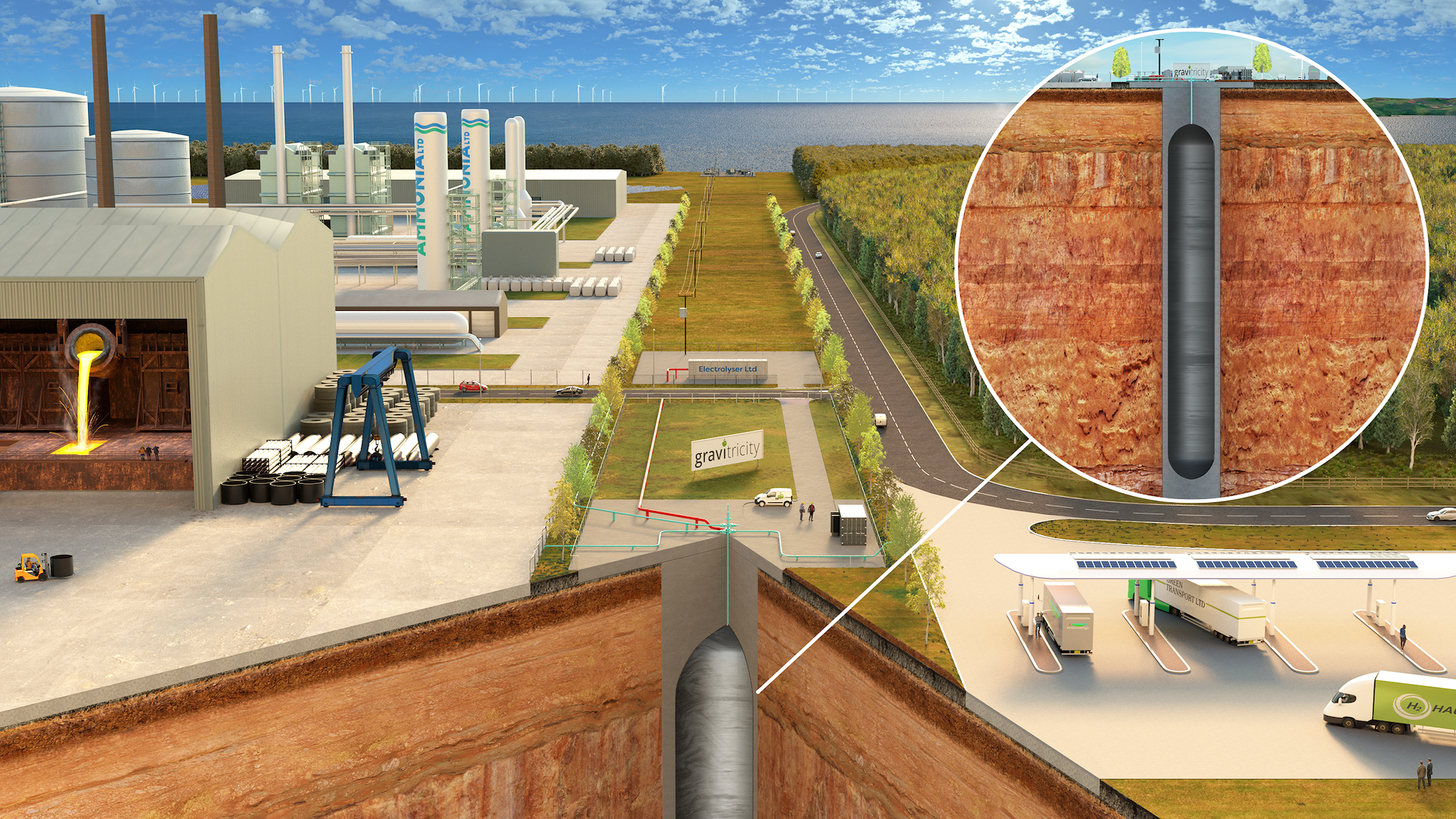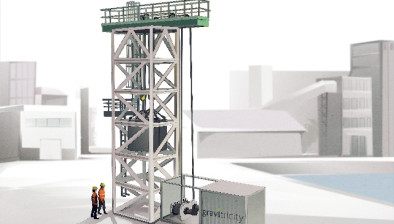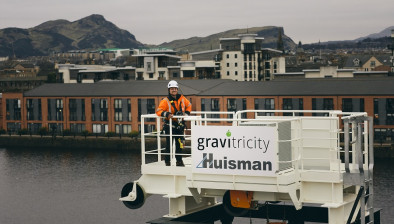Gravitricity seeks £40m to advance underground hydrogen storage plans

Gravitricity's hydrogen storage solution
Energy storage company Gravitricity is seeking up to £40 million in funding after it signed a memorandum of understanding with construction firm VSL Systems UK to design underground hydrogen stores, known as FlexiStores, which could be used to fuel the UK’s green economy.
The UK could see the construction of hundreds of purpose-built underground lined rock shafts. The storage solution could help fuel the green economy of the future. Gravitricity and VSL Systems plan to build a scale demonstrator in the next 24 months ahead of commercial rollout.
VSL is part of the French Bouygues Construction group and is a specialist contractor for the construction, preservation and repair of major engineered structures and infrastructure. Gravitricity is an Edinburgh-based energy storage company which is developing below ground gravity energy storage systems in the UK and mainland Europe.
Gravitricity believes their storage technology – known as FlexiStore – is a ‘goldilocks’ solution to the future challenge of green hydrogen storage – offering a system that is larger and more secure than above ground hydrogen storage, and more flexible than subterranean salt caverns, the two most commonly-proposed alternatives.
Charlie Blair, Gravitricity’s managing director, said it was “going out to market to raise £20 million to £40 million” to fund research and development, the construction of the hydrogen storage prototype and the first full-scale underground deployment of its gravity storage technology.
Each rock shaft would be six metres in diameter and 365 metres deep and lined with steel. A single store would hold up to 100 tonnes of green hydrogen – sufficient to refuel more than 1000 HGVS, or to power 500 buses for a week.
Gravitricity calculates that construction of just 1000 FlexiStores would meet a quarter of the UK Government’s predicted 2050 hydrogen storage needs.
Crucially, the stores can be constructed wherever required and are not dependent upon specific geological locations (a drawback of salt caverns). This means single or multiple FlexiStores can be built close to renewable-powered green hydrogen production facilities where they can fuel hydrogen-powered industrial hubs and commercial hydrogen filling stations.
A single FlexiStore would store the green hydrogen generated by a 460 MW offshore wind farm and could be emptied and refilled daily, whilst multiple stores could soak up vast amounts of otherwise wasted or ‘constrained’ wind – which amounted to 3.6TWh in 2020.
The Edinburgh firm is now seeking funds along with VSL to build its first scale demonstrator project in the UK. Once complete, Gravitricity then plans the rollout of hundreds of purpose-built green hydrogen FlexiStores nationwide. The company is also in advanced discussions with Cumbrian steel specialists Bendalls Engineering to fabricate the linings for the rock shafts.
Mr Blair added: “Green hydrogen will be a vital fuel of the future in industrial applications and in heavy transport, where electrification is just not feasible, or where industrial grey hydrogen is already used.
“Purpose-built lined rock shafts will be the safest and most affordable way to store large volumes of hydrogen near to where it will be required. It is difficult to transport hydrogen. It, therefore, makes sense to locate hydrogen storage systems close to sources of renewable power – which can generate green hydrogen – and to potential users.
“At present, the main proposals for storage are underground salt caverns and above ground storage. Salt caverns offer scale, but very little flexibility – they only exist in certain locations; whilst above ground systems lack scale.
“We believe we have a ‘Goldilocks’ solution which can be delivered safely and affordably to meet the growing hydrogen economy’s needs.”
Peter Hughes, managing director of VSL UK, said: “VSL is delighted to partner with Gravitricity to develop and deliver these pioneering ground engineering solutions for renewable energy generation and storage.
“This project is fully aligned with the VSL vision to focus our engineering capabilities and solutions on the global transition to a low carbon future.”
The UK Government has highlighted a number of electrolytic hydrogen projects across the UK which will require hydrogen storage alongside renewable powered electrolysers.

















